The Refugiados 24 social design education project has been carried out at ESDA in collaboration with the APIP-ACAM Foundation for the second consecutive year.
Through collaborative workshops on co-design and the intervention of garments as fundamental tools in this process, the creative proposal aims to highlight the cultural identity of the refugees, rescuing elements of the textile tradition of their countries of origin and adapting them to the contemporary context of fashion.

This initiative aims not only to contribute to the social inclusion of refugees, but also to raise awareness among students about the importance of sustainability and cultural diversity in Fashion Design.
This project, promoted by the ESDA DESIS Lab, takes as a reference the project Decolonizing Fashion Directed by Dr. Francesco Mazzarella at the Centre for Sustainable Fashion at the London College of Fashion (UAL), with whom we collaborated in situ thanks to an ERASMUS grant, the project uses Fashion Design and Photography.

It is an interdisciplinary project (between DM and DG), inter-level (between 1st and 3rd grades) and inter-subject (4 different subjects) and also a real project, not a fictitious one. 8 classes and more than 40 pupils have participated.

The subjects that have participated in the project are:
- CORE PROJECT II by 1st year of DM. with the teacher Ana González for the design and making of the garments.
- HISTORY OF ART AND DESIGN II for the 1st year of DM, with Professor Jorge Pina, in the research phase.
- CREATIVE TECHNIQUES for 3rd year of DM, with the teacher Andrés Jarabo, for the intervention of garments through illustrations or "textile patches" using the mixed collage technique.
- PHOTOGRAPHY APPLIED TO GRAPHIC DESIGN II, AND FASHION II by the 3rd DG, in the early days, with the construction of the collage My journey and their sharing, in a workshop led by ESDA alumnus Juan Ortega.
At the end, for the 3rd year of DM with the teacher Cecilia Casas, an editorial photo was taken of each of the looks generated.
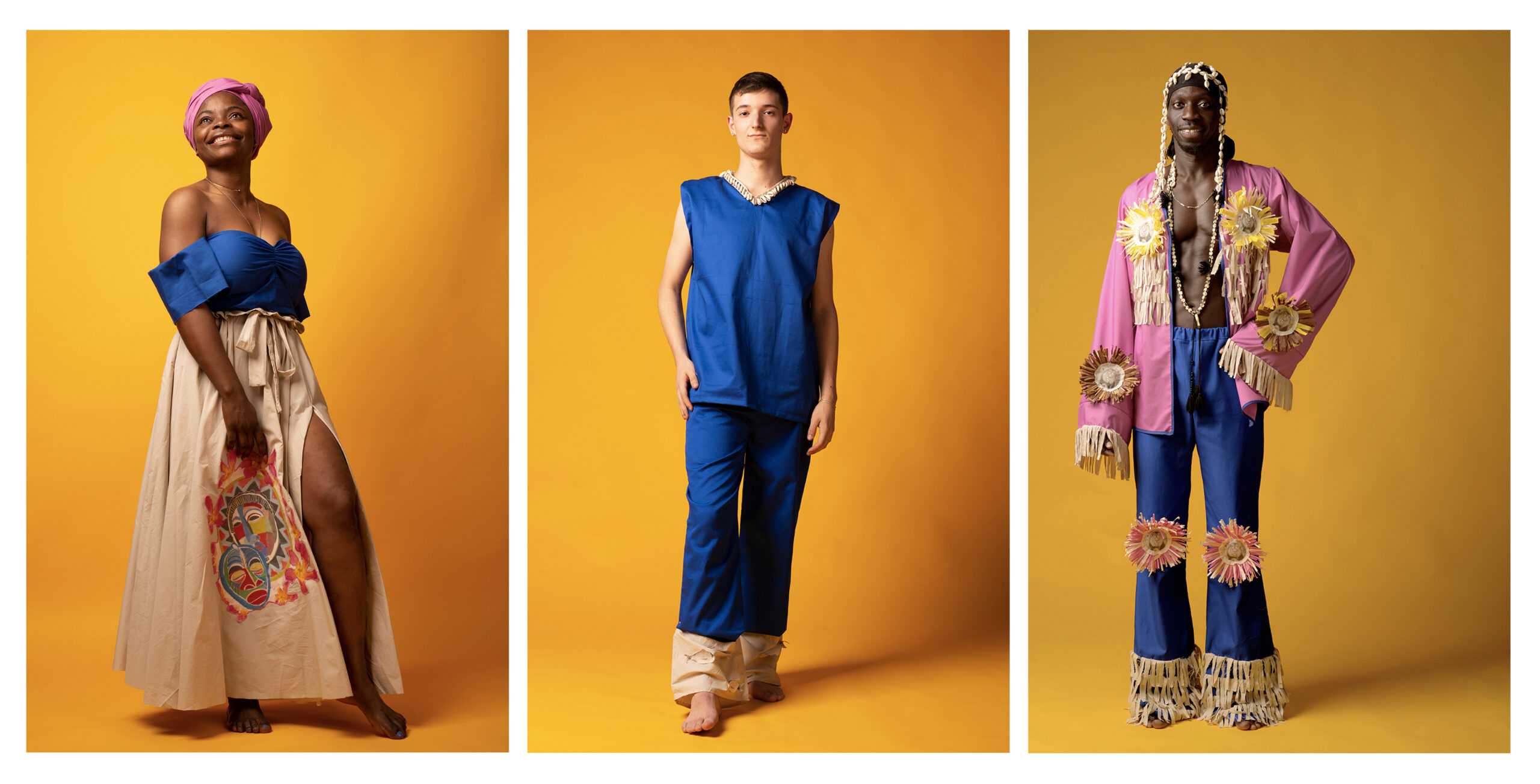
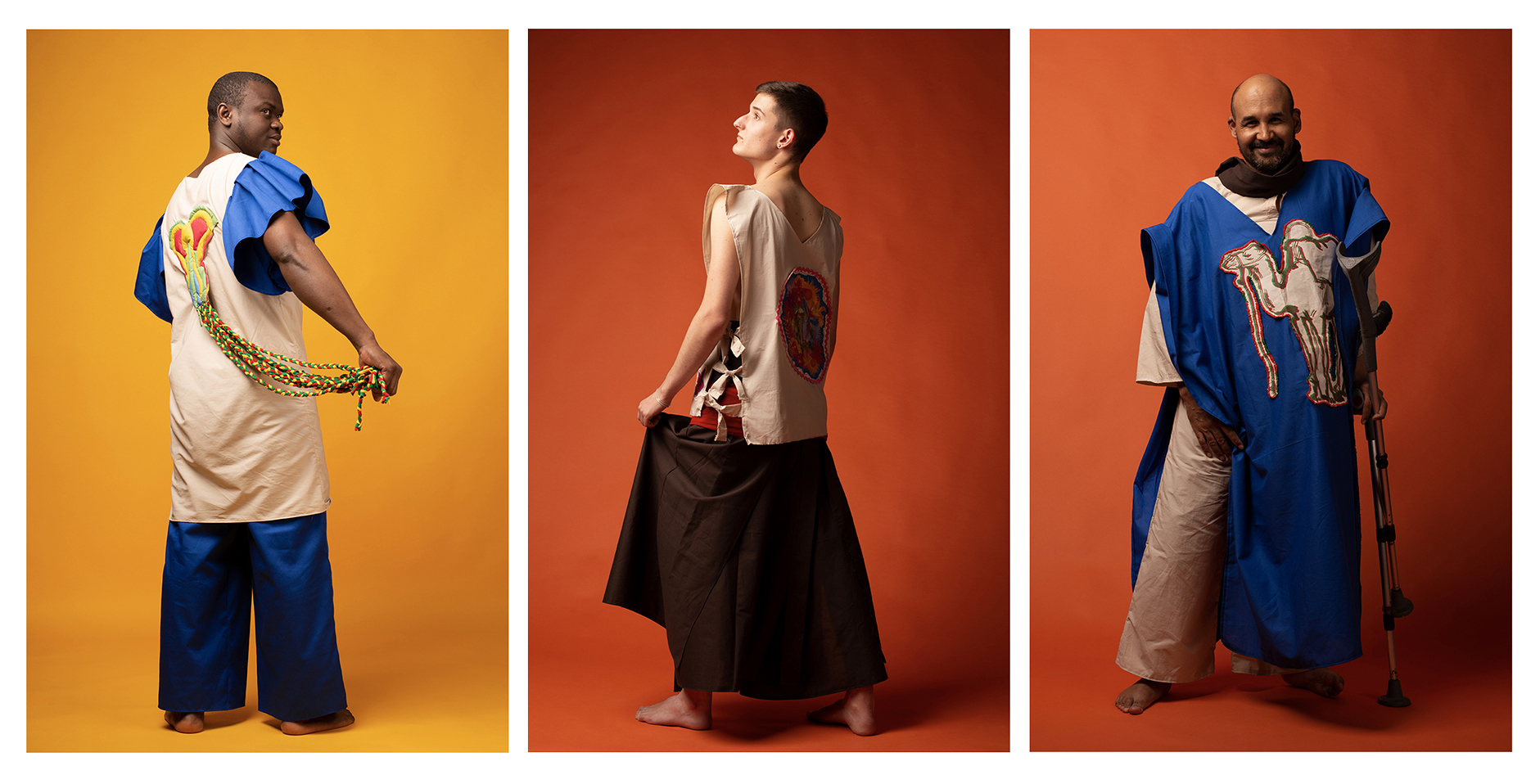
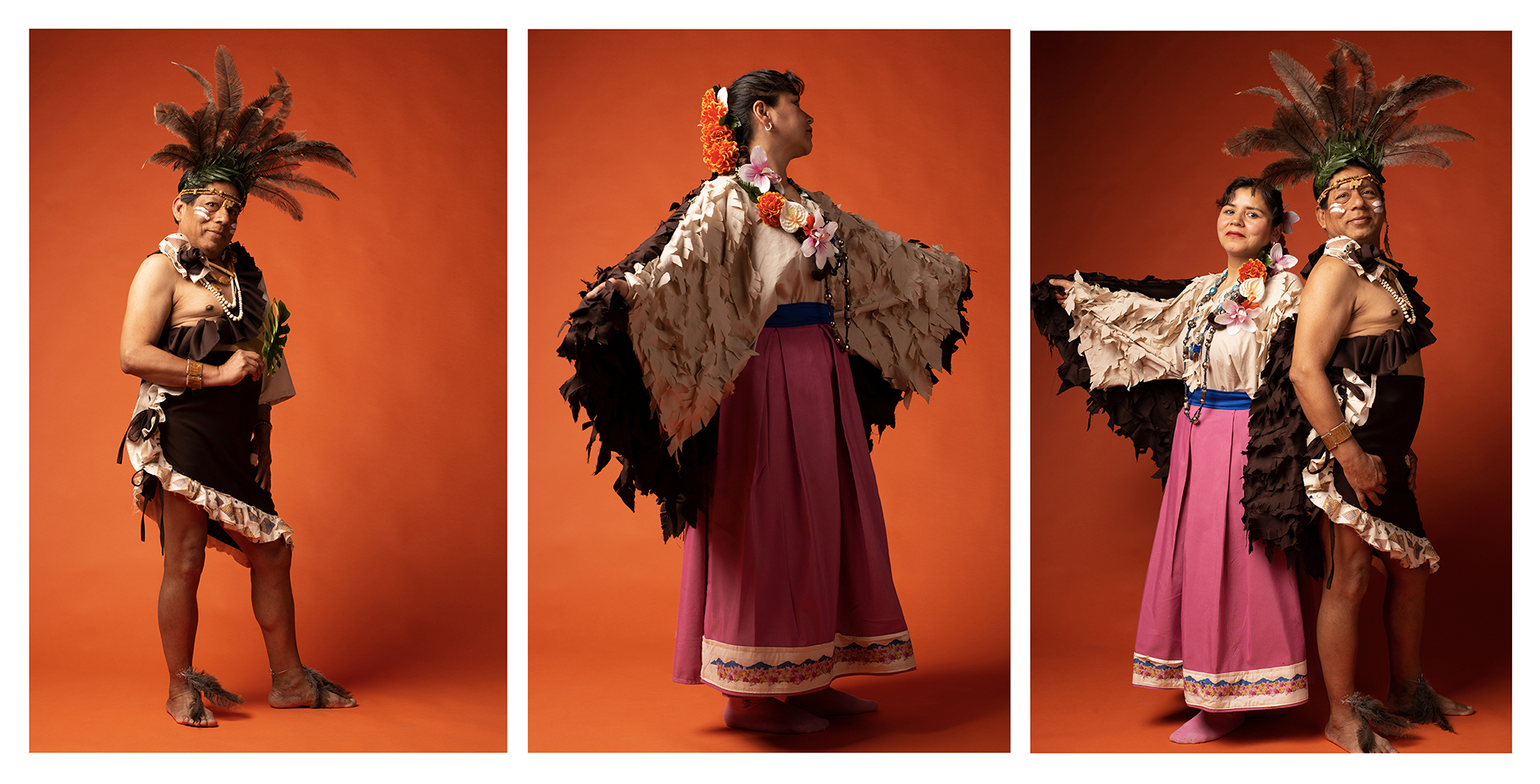
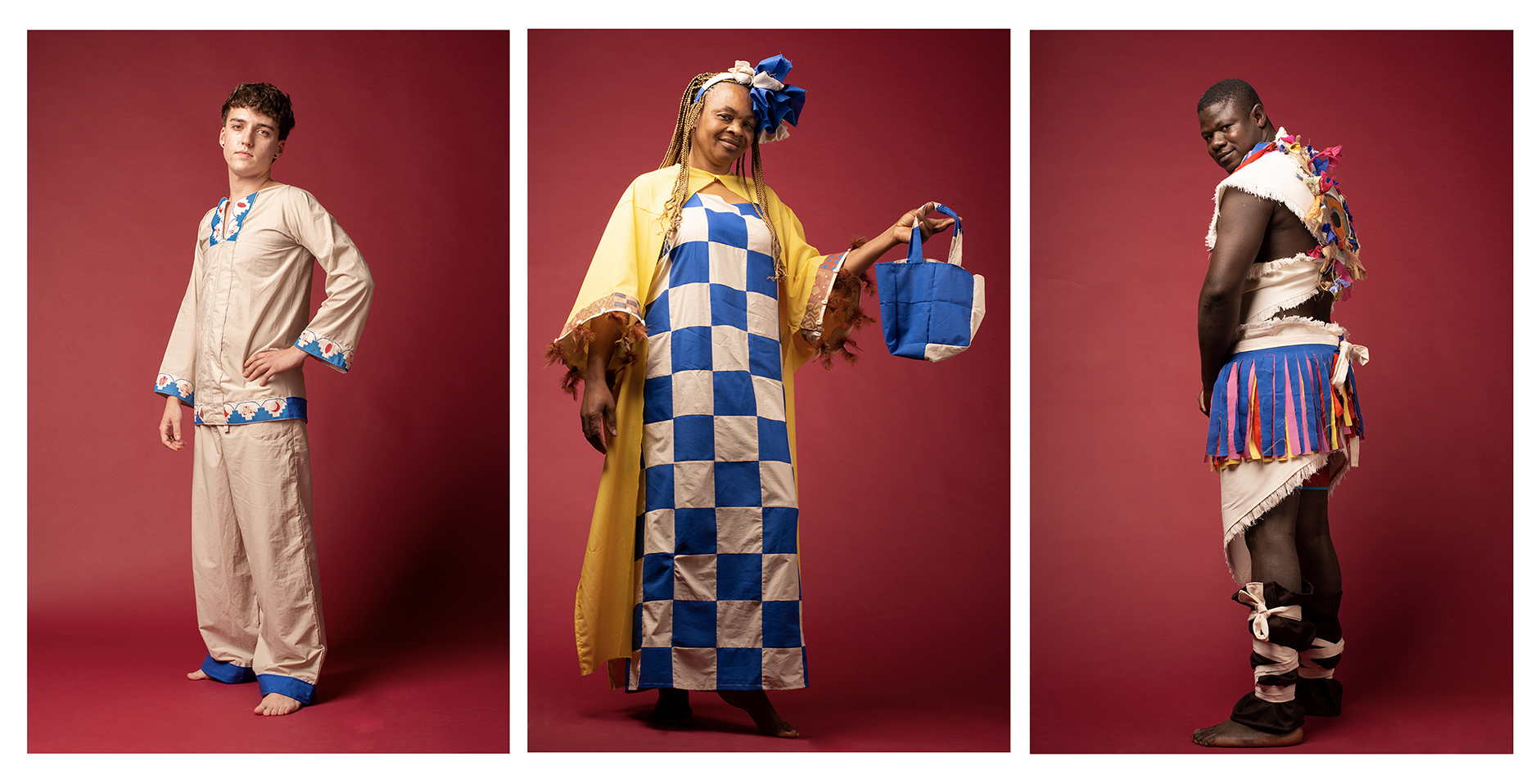
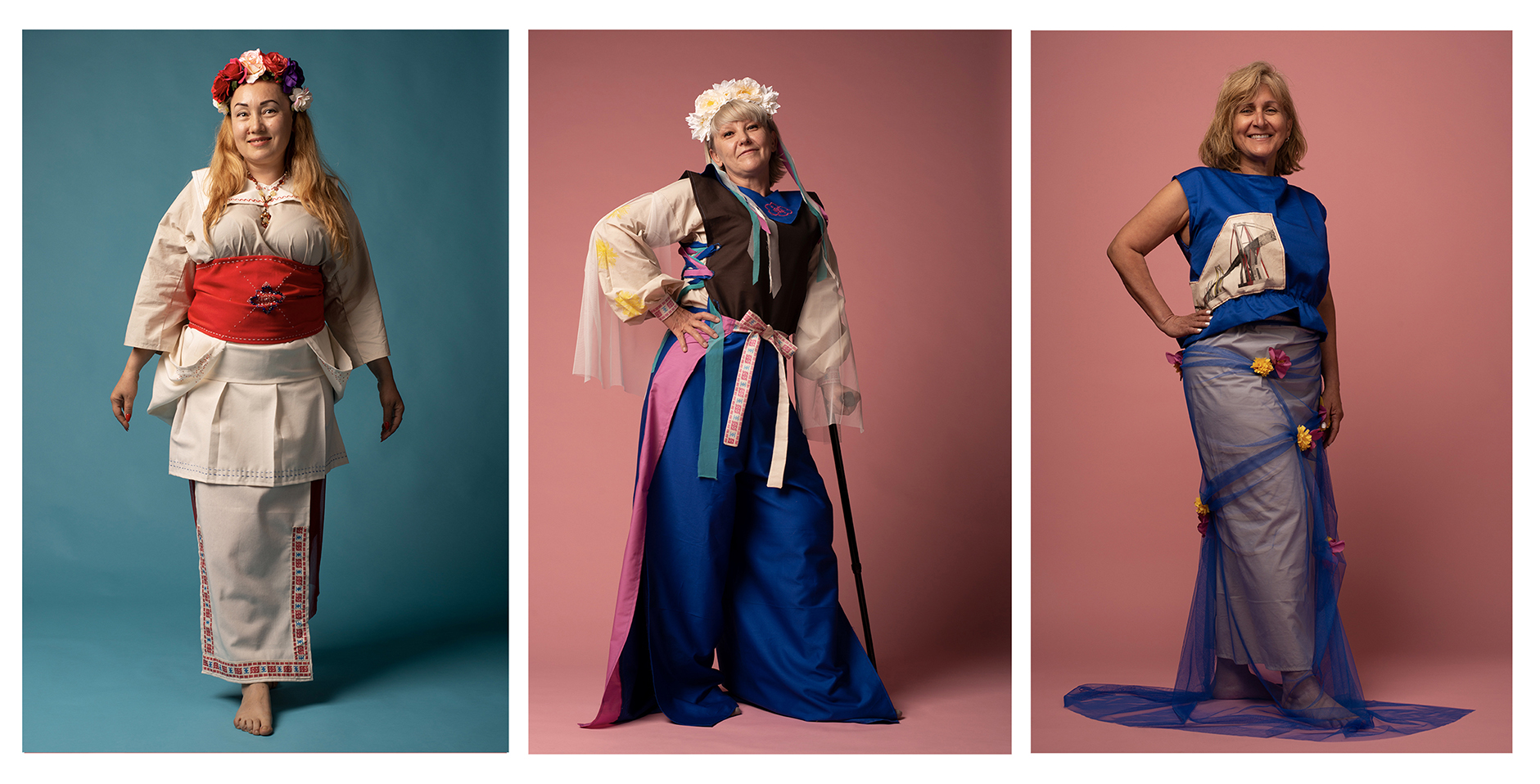

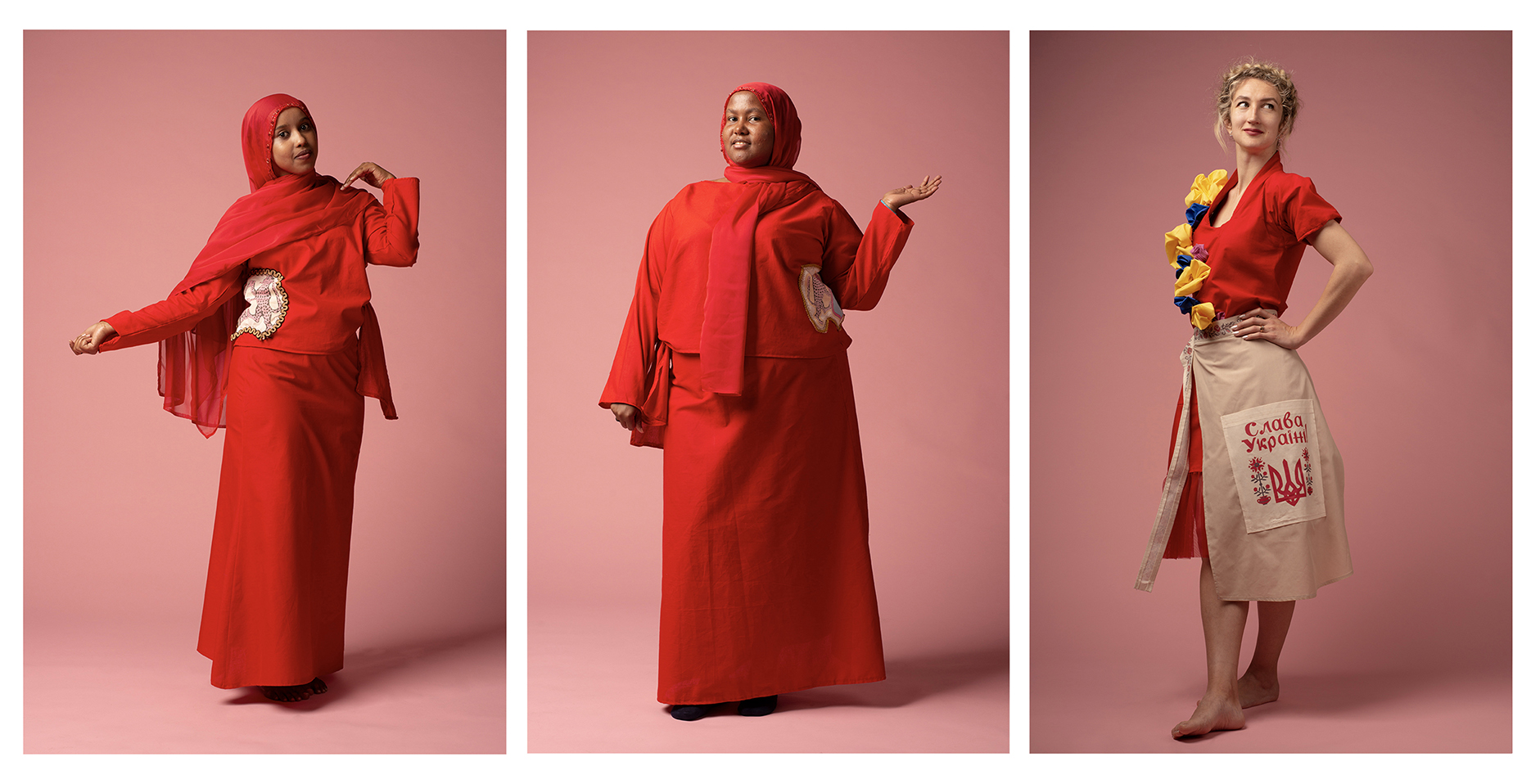
Results:
Working with different cultural identities serves not only to exchange life experiences but also to achieve other intangible outcomes such as empowerment, a sense of community and critical thinking for both refugees and students.
After the evaluation, it can be seen that the students acquire social awareness towards this group and that, through these projects, they understand how fashion design and photography can be inclusive, also in a subsequent job performance.
